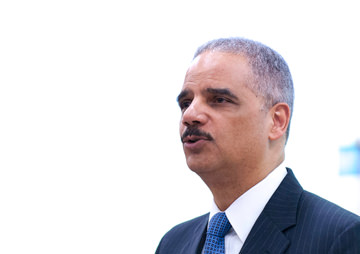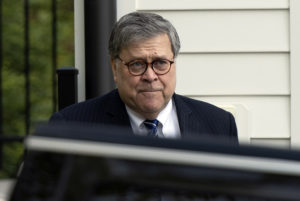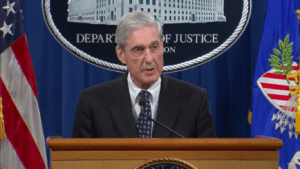Attorney General Holder Requires Recording of Interrogations, Unlike New York City
A new Department of Justice policy says federal agents must record interrogations, as a way to protect against coercion and false confessions. Attorney General Eric Holder. US Embassy (CC BY-ND 2.0)
Attorney General Eric Holder. US Embassy (CC BY-ND 2.0)
By Joaquin Sapien, ProPublicaThis piece originally ran on ProPublica.
Attorney General Eric Holder has ordered federal law enforcement agents to record all interrogations with suspects in custody.
The policy was outlined in a memo sent to the Federal Bureau of Investigation; the Drug Enforcement Administration; the Bureau of Alcohol, Tobacco, Firearms and Explosives; and the U.S. Marshals Service.
It comes at a time when the recording of interrogations has become increasingly widespread among state and local law enforcement as a means to prevent false confessions and coercion.
Currently, 18 states require interrogations to be taped, along with hundreds of local police departments and prosecutors around the country.
But the practice is not currently required by law in New York, where the failure to record interrogations has factored into several high-profile murder cases.
Last year, ProPublica published an in-depth examination of the case against Pedro Hernandez, a man currently awaiting trial for the murder and kidnapping of a 6-year-old Etan Patz. Patz famously vanished while walking to his school bus stop in Manhattan in 1979. Hernandez confessed to the crime 33 years later in 2012, following an hours-long, unrecorded interrogation.
His lawyers say Hernandez was manipulated into a false confession. They note that he exhibits many of the problems that might lead someone to confess to something he didn’t do: He has the IQ of a borderline retarded person, he is mentally-ill, and he confessed to a well-known crime, in which many of the facts are publicly known.
In January 2012, then New York Police Commissioner Ray Kelly and Manhattan District Attorney Cyrus Vance were members of a panel that called for mandatory taping in New York—but it hasn’t been uniformly adopted or required.
A spokesperson for the New York Police Department did not immediately respond to questions about its policy on recordings.
Holder’s new policy “establishes a presumption” that federal agents “will electronically record statements made by individuals in their custody.” But it also includes some caveats: recording is not required while someone is being transported to detention even if they’re being questioned during the trip, nor when suspects specifically request that they not be recorded, nor when questioning is “undertaken to gather national security-related intelligence.”
Your support matters…Independent journalism is under threat and overshadowed by heavily funded mainstream media.
You can help level the playing field. Become a member.
Your tax-deductible contribution keeps us digging beneath the headlines to give you thought-provoking, investigative reporting and analysis that unearths what's really happening- without compromise.
Give today to support our courageous, independent journalists.





You need to be a supporter to comment.
There are currently no responses to this article.
Be the first to respond.